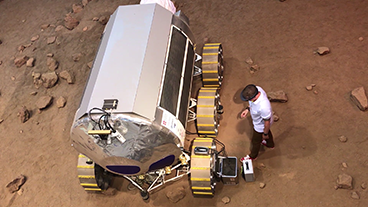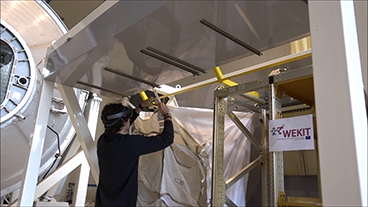Augmented Reality (AR) has often been hailed as the medium of the future. There are no shortages of conceptual videos showcasing its potential as a futuristic technology set to revolutionize the human culture itself. Researchers have often touted AR as a medium that will impact the fundamental pillars of society, such as education and health. While AR is still not commercially available at a large scale for the general population, it has not stopped researchers from exploring this technology in the realm of tomorrow.
CEL Researcher Bibeg Limbu was involved in one of these pioneering research projects: WEKIT (Wearable Experience for Knowledge Intensive Training). This study published in the International Astronautical Federation Conference (Washington D.C, 2019), AR was used to train astronauts for exploration missions.
The authors present AR as a key technology to address many of the issues in training astronauts. Astronauts begin training for their missions years prior to their departure. This is due to the complexity of the skill and the level of mastery required, which is critical for the mission. AR training platforms can reduce the amount of time required to master these skills by enabling authentic practice. AR enables astronauts to train by actually performing the real skill, which reduces the time required to learn and the risk associated with handling expensive space equipment. For example, in the figures below, AR is being used to provide assistance during training in performing some of the actions required by the astronauts on the replica of the actual models. In addition, training can also be done during the long mission using AR. In long missions, astronauts are required to continuously train their assigned role. In such scenarios, training assistance from earth can take days to reach the astronaut in space. AR platforms can provide assistance both in training and in daily activities during the whole mission.


In the study, the authors report that the performance results among experts using the WEKIT AR platform varied. However, the general sentiment towards the novel approach seemed to be positive. The state of knowledge, research and technology in AR may no longer be in its infancy, but there is still much work to be done, both in terms of technology and user experience. AR projects such as this, are promising stepping stones that contribute and pave the way for future works.
